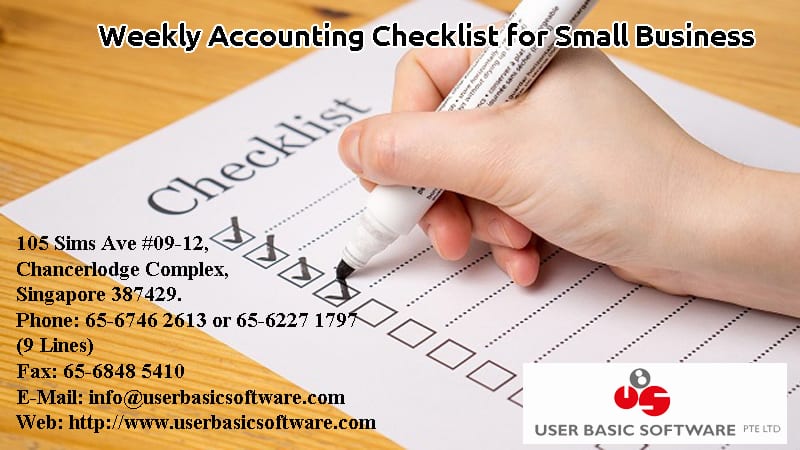Develop excellent accounting practice to keep your financial records on the track. As a small business owner, you regularly managed, don’t have to take up much of your time. You need a small business weekly accounting checklist to help keep your finances structured. Here are the responsibilities you should be doing each and every week.
Bank Account Reconciliation
Your bank account actually can’t be reconciled frequently. Proper bank reconciliation means that you have the money that you think you have, which is clearly very essential for any business.
Most of the small businesses make the general mistake of waiting for a bank statement to reconcile their accounts, but bank statements are only mailed monthly. That means you have around 30 days between reconciliations, and a lot can occur in 30 days. You are supposed to at least reconcile all of your cash accounts weekly.
Vendor Payments
A vendor payment is very important for keeping track of your debts, and it’s also essential for establishing a good reputation and credit history with your vendors.
This is one of the tasks that shouldn’t take place every day either. It’s puzzling and lengthy process for your bookkeeper, and there’s no actual profit to paying bills every day. Once a week is the best timeframe for this task because it’s most efficient. Your bills are paid on time, and your bookkeeper isn’t troubled by too many check runs.
Customer Receipts
No one wants to pay a bill, then receive a past due notice a week afterward. To stay away from this situation, make sure your customer receipts are recorded in a timely manner. Daily would be ideal, but weekly should be sufficient, too. Clearly, you should also not at all mail statements without posting all your receipts first, except you want to field calls from upset customers.
Review employee timesheets
This is a critical small business accounting task. Even if your payroll is on a biweekly or semimonthly basis, you should review your employees’ timesheets weekly. perfectly, you want to check these two days before the end of the work week. This is a way to avoid surprise overtime liabilities.
Other Transaction Entries
Auto-debits, interest payments, and bank fees are some regular transactions that you’ll have to record weekly. Most bookkeepers prefer to record these before a bank reconciliation to make the process as smooth as possible.
As you grow, you’ll likely build up your own system for each phase of the accounting cycle, but this guide should give you a good start.














